The other day I was able to step out of the gym and take a look as the Level 9s and 10s trained. It reminded of how important it is to learn how to train. It also reminded what a big step this is in the development of the athlete. The group ranged from first year Level 9s to some 10s who have competed at Nationals a number of times. The contrast in the workout was amazing to watch. Everyone did the workout. [Read more…]
Flow state
Recently, I attended a rock concert by The Who. In the middle of one of their classic songs, “Teenage Wasteland,” (Baba O’Riely) lead singer Roger Daltry, stopped singing, stepped back from the front of the stage and looked around the arena in amazement. Everyone in the standing-room-only audience of was singing, standing, swaying, and singing the song together. All were lost in the moment, thinking of nothing but the present . . . [Read more…]
Being a TEAM
* When I first posted this- the last line was inadvertently left out after the photo. This was pointed out by a reader. SINCERE Thanks.
The last line SHOULD HAVE read- THIS WAS A REPOST from Tom Burdorf’s great blog. If you do not follow his blog- you should. He has a lot of great things to say.
When I was in High School (a fairly long time ago) I was often frustrated by the learning process. Each teacher viewed their class as THE MOST IMPORTANT THING. They did not work together. I had a 10 page term paper due in History and a 10 page term paper due in English. Could I use the same paper in both? NOPE.
I never understood the reasoning behind this. Why not have one, 15 page paper due. With the History teacher working in conjunction with the English teacher.
I see many gyms that work like that. The Vault Coach has a certain set of drills and conditioning that they insist MUST be done. The Floor coach has a certain set they feel, of course, must be done. The same is true for every event.
The beauty of gymnastics is that certain movements are shared at each event. As coaches we need to consciously make connections to make training more effective and efficient. We need to understand that that although we may target a particular event or muscle group they are all affected regardless of the emphasis. Ultimately the most important connection we must make is to connect the training to the competition. Never lose sight of the fact that the goal of training is to prepare the athlete for competition, therefore all training must connect to competition by thoroughly preparing the athlete for the demands of the competition.
Now although I am a HUGE advocate of working together. I also believe that there can only be one leader. Pick your cliche’
- a team with 2 starting quarterbacks is a team with out a quarterback. (ask the NY Jets)
- Too many cooks ruin the soup
- Too many Chiefs, not enough indians.
Work as a TEAM to come up with THE PLAN. F
ollow through by Implementing the PLAN. There will be a time when you will be the leader. There will be a time for you follow. When you lead- lead by example. When you follow, follow with gusto. I have seen too many gyms brought down by dissension. Work Together towards that common goal of gymnastics greatness.
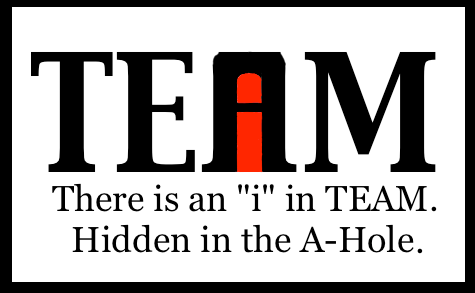
THIS WAS A REPOST from Tom Burdorf’s blog (on Facebook) . If you do not follow his blog- you should. He has a lot of great things to say.
HAVE SOMETHING TO SHARE? Keep the momentum going!
Coaches as educators. An ongoing journey.
Your Brand
I have been hearing a lot about brands and branding lately. In a traditional sense a brand is a name or a symbol.
In coaching and teaching it represents more, it is you and what you stand for.
You are your brand. Who you are?
You actions and your words will define who you are to others.
How honest you are with yourself will clearly define you. Be yourself and true to yourself. Be the brand you want to be. A good place to start is genuine concern for others through your actions and words.
We have all had some great teachers growing up (Mrs. Schneider, Grade 8 Math. Thank you!) and some pretty terrible teachers. (Mrs. Brown. Wish you had retired the year BEFORE you had me). Most of us have had some good and some bad coaches along the way. What I think about EVERYDAY is how my gymnasts will remember me. I was lucky to have recently run into one of my best gymnasts who is now coaching. We had a great deal success together but also butted head A LOT. At a competition I sat by her in the coaches hospitality room and she said,
Tony, everyday when I work with these level 7’s I want to call you up and apologize.
It is not easy to teach. Sometimes the lessons are WAY MORE than just gymnastics. Remember your BRAND and think about what your legacy will be.
Lessons from 2012 Part 2
Lessons from 2012 – Part Two
Part 1 can be viewed here.
We may think we are training the body but we are really training the brain – To borrow Tim Noakes terminology the brain is the “Central governor” it controls everything we do.
Talent development is not survival of the fittest – It is not about ten years or 10,000 hours it is a process that involves deliberate practice. It is understanding growth and development, individual rates of maturation.
You cannot separate excellence in sport from excellence in life – You can’t be a chump outside of training and a champ in the game. You may get away with for a little while but eventually it will catch up with you.
When working on skill or acquiring a new technique – Once someone gets it right – STOP (Allow the brain to retain what it learned) Vin Walsh
Important to learn how to ask the right questions – This is the key to learning. Asking questions that are insightful and on point.
You must train the way you want to compete– Yes it is about specificity, but it is more than that. All aspects of training must line up with the demands of the gymnastics. I had a visiting coach in my gym yesterday who asked, “why are the girls wearing long sleeve leos for training?” Simple, they must compete in a long sleeve leo, they must be comfortable with their body without shorts, tights, etc. So, one day per week during competition season we have long sleeve leo day.
Nothing ventured, nothing gained – No gain without risk. Mistakes are learning opportunities.
Coach the athlete you have not some mythical hypothetical model – Know your athletes, their strength & weaknesses, individualize to the greatest extent possible.
Know the basic technical models of your sport – Master them and build on these.
You must train the female differently – There is a whole different endocrine hormonal environment. Strength training is much more important during all phases of the training year.
Those who achieve at the highest levels are seldom if ever concerned what other have to say about them or judge them to be – High achievers are confident and will stand out from the crowd regardless of criticism.
Lessons from 2012
Each year at this time of year I look back on the previous year just completed and as I get older I find myself looking back increasingly over years gone past. I do this not for nostalgic reason rather I do it to gain perspective to more forward. Much like a rower in a single scull sits facing away from the direction they row, they must look back to move forward effectively. The end of the year is a time for reflection and analysis. Each day is special, so do something to make each day special for yourself and for someone else.
Lessons from 2012
Being ready to deliver on the day – The ability to have your athletes ready to perform at their best at the required time is most important. That can be the final of the Olympic games or a Level 4 local meet. Everything is directed to this goal.
Coaching is a careful blend of art and science – No more explanation is necessary
Emotional intelligence is the key to effective coaching – It is all about people and how we as coaches grow and develop ourselves and the people we work with.
An overemphasis on injury prevention will lead to injuries – Good injury prevention is a transparent part of a sound training program. What is happening today is an over emphasis on so-called corrective exercise and special injury prevention exercises. Normal training is being ignored. When training is ignored then the athlete is predisposed to injury because they are not ready to perform.
It is imperative to develop and refine physical literacy in parallel with skill development – Physical literacy slightly leads skill and technical development; it is impossible to have one without the other.
We must take a giant step back and look at what we are doing with recovery – I think we need to learn to use recovery methods more judiciously. Not necessary just ice baths after every workout. We need to understand that the inflammatory cascade is part of the adaptation process. We must educate the body to take advantage of this not interfere with this all the time. Incorporating recovery into your workout plan can not be ignored. Here is an article by BILL SANDS- The importance of planning rest periods in the weekly training plan. Includes a sample recovery program.
Little things count – Big things are a given, they are hard to overlook but it is the little things that quickly add up. Attention to detail in each part of your practice will make the difference.
Coaching men and women is different. “Men battle to bond. Women bond to battle.” Nigel Redman – I think this is pretty self-explanatory.
Things I will NOT miss from 2012 (and NEVER want to hear about again)
Things I Will Not Miss About 2012 (and never want to hear about ever again)
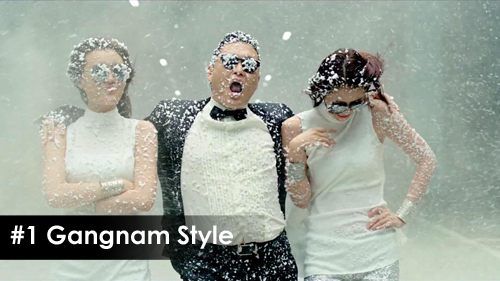 We had to endure the Electric Slide, the Hustle and, the Macarena. 2012 brought us, direct from South Korea, Gangnam Style. I don’t get it. Still it received over one billion views on Google’s You Tube. Frankly it is stupid. It has replaced YMCA and the Conga as the most embarrassing dance at weddings and celebrations – unless of course you are eight years old. Enough is enough.
We had to endure the Electric Slide, the Hustle and, the Macarena. 2012 brought us, direct from South Korea, Gangnam Style. I don’t get it. Still it received over one billion views on Google’s You Tube. Frankly it is stupid. It has replaced YMCA and the Conga as the most embarrassing dance at weddings and celebrations – unless of course you are eight years old. Enough is enough.
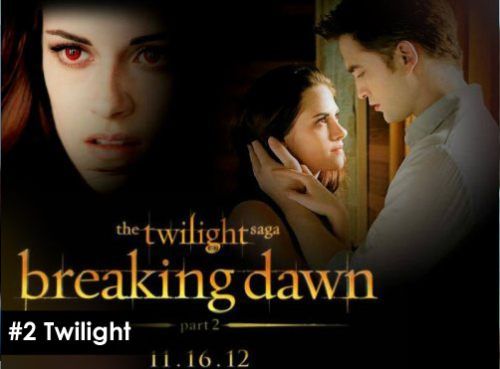
TwilightYes, Robert Pattinson and Kristen Stewart might be easy on the eye but that’s the only appeal of Twilight, whose lovesick melodrama is surely only acceptable if you’re 15 years old and full of hormones. You like vampires? Watch The Lost Boys – in a battle for King of the Vamps, Kiefer Sutherland’s David Van Etten would beat Edward Cullen hands down.
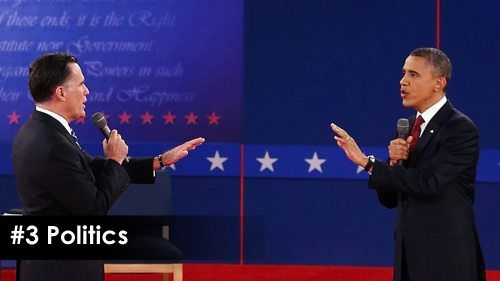

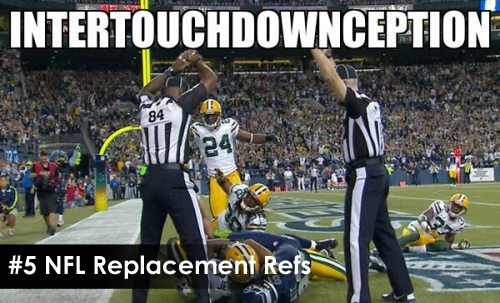
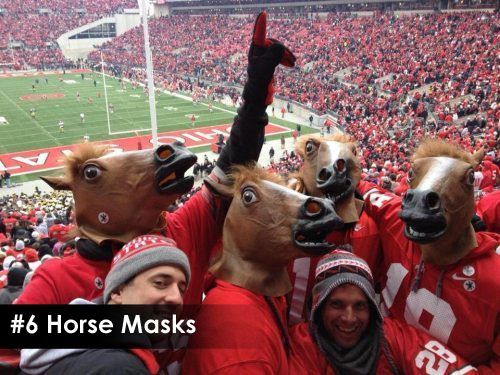


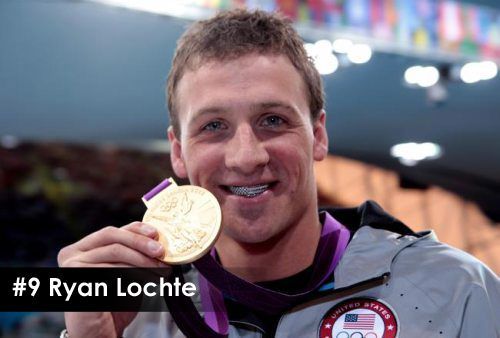

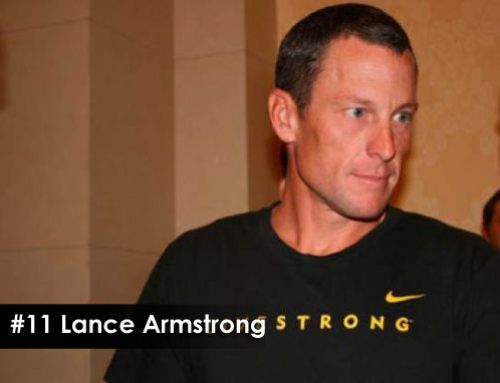




MORE THINGS ON MY LIST
THE KARDASHIANS AND OTHER REALITY PSEUDO CELEBRITIES
FISCAL CLIFF – C’mon Congress. Do your job! And you wonder why your approval rating is lower than Nixon during the height of Watergate.
THE 1 PERCENTERS – I don’t know about you, but I am sick and tired of hearing about the “1 percenters.” Why does our society insist on the one hand deifying the rich and famous actors and athletes who are overpaid far more than bankers yet at the same time demonize successful entrepreneurs? Why can’t we think about the 100 percenters, that is everybody as a society in its entirety? Remember that more one percenters live in the “Sandy” states of New York, New Jersey and Connecticut than anywhere else. They are people too. Instead, politicians have to pit segments of society against each other. It is so counterproductive. We made it through World War II by being a nation of 100 percenters. We fought epidemics like AIDs as a nation of 100 percenters. Why change our strategy now?
STATES TALKING ABOUT SECEDING- Just stop it. You really aren’t going anywhere. Be part of the solution not part of the problem.
FEEDING THE BEAST
Q
Q stands for quality. Quality is a measure of perfect. Each day, each training session we should strive for the highest quality possible. Start with perfect effort that should not be difficult. Effort sets up the outcome. Quality effort and intention leads to quality outcome. Quality training outcomes in turn yield quality competition results. To asses progress in training at the conclusion of each training session rate you quality of training on a scale of one to ten. One being the poorest and ten being perfection. Focus on the process to achieve the desired outcome. Quality is the key to optimizing the process.
Feeding the Beast
The beast – The Internet, cable television, YouTube all have an insatiable appetite for training porn. There is no filter, no checks and balances. Quote a scientific study out of context and you have the “evidence based” research needed to validate the misinformation. The fundamental training principles that I learned over twenty years still hold true. We need to follow them – not some wacked fad based pseudo scientific training that hurts more people than it helps. Even if it doesn’t hurt, ask yourself does it help? For validation look at results that are consistent over time, methods that top coaches and athletes have used to win medals and set records. Those things do not happen by chance and by chasing Internet training fantasies. Certainly we should innovate and challenge conventional wisdom, but start with a clear understanding of the basics and build from there. Let’s stop feeding the beast, except at prescribed feeding times, much like the animals at the zoo.
4 Things I learned from Matt’s Dog JACOBY
I try to be an easygoing person. Some have even described me as laid back. But like many, when things went wrong, it can be tough to recover from. Some coping skills just aren’t effective, unless you consider drowning your sorrows in bottles of wine and pans of brownies healthy. When things don’t go my way or my expectations weren’t met, I can feel desperately inept at holding myself together.
I wait for my life to change–for things to start going my way. And that’s when I finally realize that life doesn’t work that way. It doesn’t simply go the way you want it to, no matter how much you wish or pray about it, and even sometimes no matter how hard you work at it. More often than not, life is simply hard. You don’t often get what you want, and many feel they don’t get what they deserve. We just get what we get. It’s how we cope with it, embrace it, and learn from it that makes us whole or broken.
Once I realized this, it was a slow awakening. I didn’t simply understand one day and wake up changed. Just like the reality of the alarm clock in the morning, I tried to deny it. I hit snooze. Pulled the covers over my head. Chased the last bits of darkness and dreams. But eventually, as is always true, I had to wake up and live my life.
Funnily enough, I took my cues on changing the way I lived from one of my employees and friend dog Jacoby. After all, He is happy all the time, so who better to look to for ways to live life? So I started to live like Jacoby.
1. Embrace the morning.
 I hear that every morning, Jacoby wakes up happy and realized there’s no reason I can’t, too. He’s always snuggly and wagging and excited that it’s a new day. Instead of waking each morning and wishing my life were different, I decided to wake up thinking of it as a new beginning. No matter what has happened the day before, the morning is always a new opportunity—to change your attitude, your mood, your mind. That was a decision I had to make, a practice to put into play. I talked myself through it everyday until I didn’t need reminders anymore. Now, I awake to stretch my limbs, get some good snuggles, and go outside for some fresh air. Each morning, regardless of whether it’s cold outside or I’m especially sleepy, is a fresh start.
I hear that every morning, Jacoby wakes up happy and realized there’s no reason I can’t, too. He’s always snuggly and wagging and excited that it’s a new day. Instead of waking each morning and wishing my life were different, I decided to wake up thinking of it as a new beginning. No matter what has happened the day before, the morning is always a new opportunity—to change your attitude, your mood, your mind. That was a decision I had to make, a practice to put into play. I talked myself through it everyday until I didn’t need reminders anymore. Now, I awake to stretch my limbs, get some good snuggles, and go outside for some fresh air. Each morning, regardless of whether it’s cold outside or I’m especially sleepy, is a fresh start.
2. Use your senses.
 During competition season I have to walk Jacoby every once and a while. Every time I walk him, he’s constantly sniffing, listening, alert. I realized that I never paid attention to my surroundings. I was always too busy brooding—looking at my feet or my phone or just lost in negative thoughts. Now, I’m present in each moment of my day. I look up at the sky to notice its blueness and the way the clouds stretch across the horizon. I take deep breaths, inhale the crisp winter air, and give thanks. I listen to the last of the leaves crunching underfoot, and cuddle into the softness of my scarf. It makes me grateful for the small things.
During competition season I have to walk Jacoby every once and a while. Every time I walk him, he’s constantly sniffing, listening, alert. I realized that I never paid attention to my surroundings. I was always too busy brooding—looking at my feet or my phone or just lost in negative thoughts. Now, I’m present in each moment of my day. I look up at the sky to notice its blueness and the way the clouds stretch across the horizon. I take deep breaths, inhale the crisp winter air, and give thanks. I listen to the last of the leaves crunching underfoot, and cuddle into the softness of my scarf. It makes me grateful for the small things.
3. Sing!
Let me preface this by telling you: I am not a singer. But, Jacoby absolutely adores it when I sing. He wags his whole body when I sing to him. I sing The Ramones, Greenday and James Taylor and butcher every last lyric and note. But guess what? It makes him—and me—happy. You can’t belt out Bohemian Rhapsody and stay in a bad mood. It’s a scientific fact. Ok, maybe not, but it’s true for me.
4. Show affection.
 No matter what has happened in his day, Jacoby is always glad to see Matt. He wags. He jumps. He gives kisses and cuddles. He even cuddles up to me when I come over and sit on the couch and he tries to sit on my lap (No easy feat as he is nearly as big as me). While his affection doesn’t exactly translate into my world, I take a cue from him by smiling at people on the street, saying good morning, holding doors open, and paying compliments to friends and strangers alike. Not surprisingly, it makes me feel good to make others feel good.
No matter what has happened in his day, Jacoby is always glad to see Matt. He wags. He jumps. He gives kisses and cuddles. He even cuddles up to me when I come over and sit on the couch and he tries to sit on my lap (No easy feat as he is nearly as big as me). While his affection doesn’t exactly translate into my world, I take a cue from him by smiling at people on the street, saying good morning, holding doors open, and paying compliments to friends and strangers alike. Not surprisingly, it makes me feel good to make others feel good.
How does this translate into resilience? Well, I’m a happier person. Not because I have the perfect job or family or friends (and I DO). Not because I have loads of money or amazing Car (I DON’T). I’m happier because I’m grateful. I realize that for all the things I don’t have in my life, there are hundreds, maybe even thousands, more to appreciate. When things don’t go the way I’d hoped, it doesn’t destroy me because I can recognize that there’s so much I have that is good, and there are so many reasons to be happy. I allow myself to feel sad or hurt or angry, but it doesn’t consume me. I feel it, and then I move on from it. I can see the bigger picture and realize that these are all small moments in a much greater scene. Rather than pursuing happiness, I’m just letting myself be happy.
Sometimes Jacoby come to the gym to help us with Vaulting
Leadership
Thoughts on Leading
The best way to lead is always by example. But in order to be that leader you must:
- Know the Way – To be effective make sure you and everyone involved knows the final destination.
- Show the Way – Lead from from the front, set the example.
- Go the Way – Get it down, meet obstacles head on and overcome.
What do you coach?
Do you coach Track & Field, Football, Gymnastics or diving? Yes you do but more importantly you coach the people who compete in those sports. The human element transcends all. Anyone can learn the techniques and strategies, but to be truly effective as a coach you must coach the person. Know what makes your athletes tick. Take an interest in them as people, they are not machines, they have feeling and emotions, they have lives outside of sport. I think of the great coaches I have been privileged to be around, this is a characteristic they all shared. They were emotionally intelligent; they took the time to understand their athletes as people and coached the person who did the sport. At the end of the day I always ask myself did you coach today the way you would have wanted to be coached?